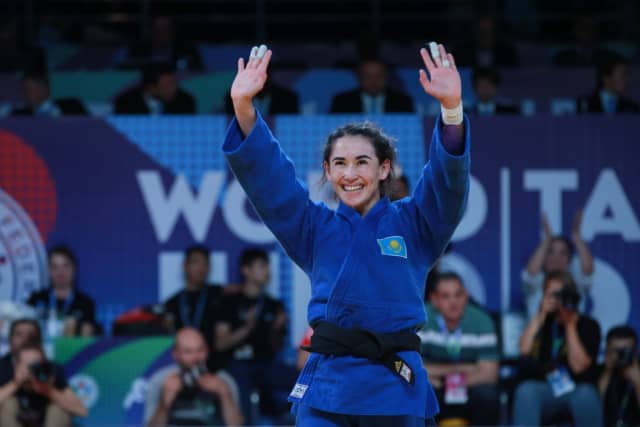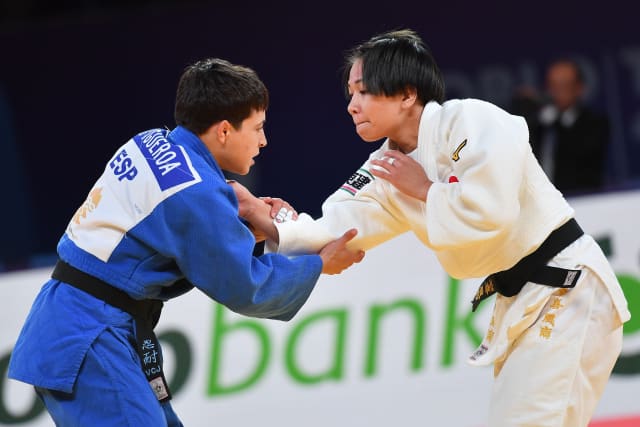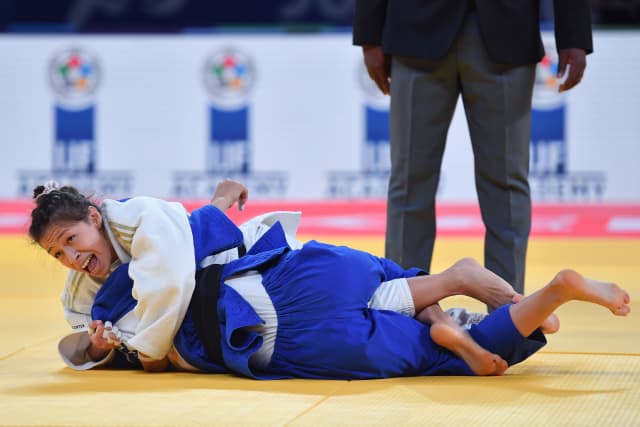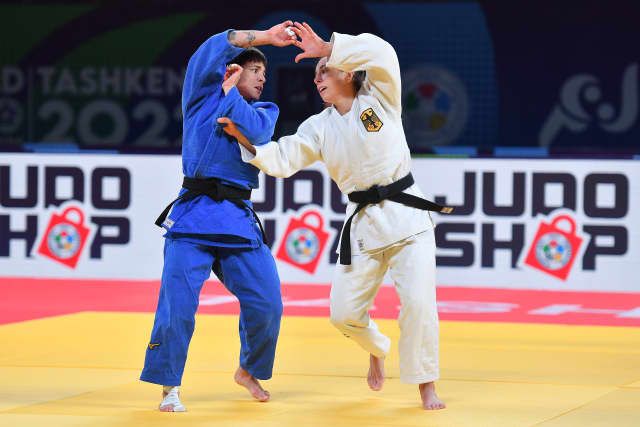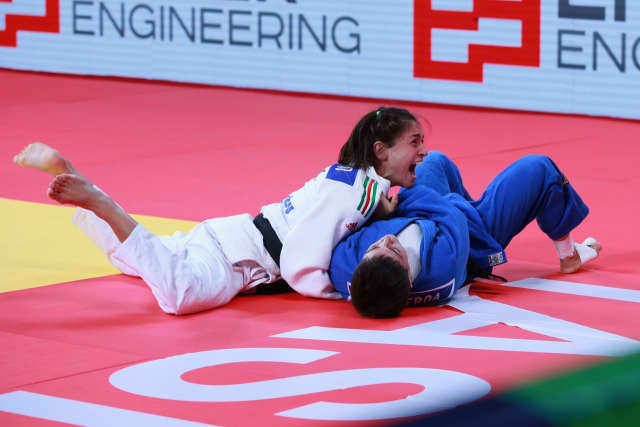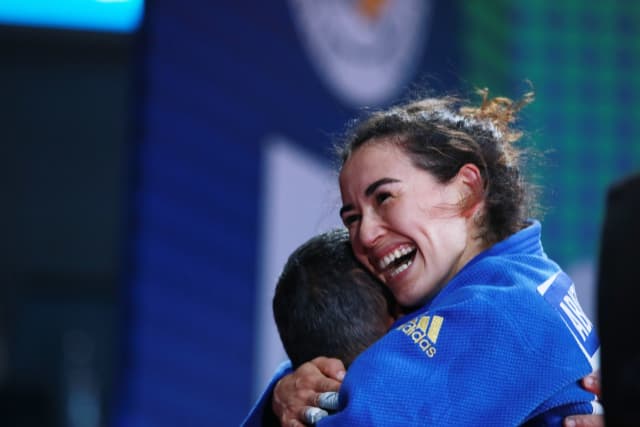Top seed Boukli (FRA) was beaten by the unseeded Kazhak Abuzhakynova. The number 2 seed, Costa (POR), despite having such a fantastic upswing through the last year, could not hold form and lost against Menz (GER). Rishony (ISR) was beaten by the unseeded Italian Scutto.
Perhaps the biggest shock of all was Olympic silver medalist Tonaki (JPN) losing to Figueroa (ESP) in the quarter-final. Under normal circumstances a loss there would have at least offered the Japanese judoka the chance to fight for bronze but a direct hansoku-make meant she could not appear again and so she left a space in the repechage, one that Vargas Ley of Chile was all too pleased to fill.
Speaking of the Chilean, what a day she had! She benefitted from a bye in the first round and then beat the athlete from Turkmenistan before dispatching the very experienced American Laborde. She then lost to eventual silver medallist Menz (GER). With no repechage final to fight, she moved into the bronze medal contest for a career-topping moment, fighting for a medal at a world championships for the first time. It's not just a first for Mary Dee Vargas Ley but for Chilean Judo.
It is true that sometimes we have a tendency to repeat ourselves but it is also true that we are talking about the most prestigious tournament of the year and there are some protagonists who have not taken the hint when they should. It is in that area, the one that separates the champions from those who are not, where we know the maturity of an athlete. If we think about Tonaki, this should have been the day of her confirmation, given her results during the year but Japan had another bullet in the chamber, perhaps they had foreseen an unexpected stumble and since they have reservations, just in case, they put a second Japanese in the category. The French did the same at -60kg but where the men failed, the Japanese called bingo because the other bullet was Natsumi Tsunoda, last year’s world champion.
Of the four semi-finalists, Tsunoda had the most to lose but because of her quality, she was also the most expeditious. The Japanese smoothly outclassed Kazakh Abiba Abuzhakynova and presented her credentials to retain the title. The other semi-final had Figueroa as a resumé favourite and because she had just eliminated Funaki. As we sometimes repeat, here comes another example: everything is possible in judo. Figueroa lost against Menz. We don't know if the Spanish was over-confident or if the German was so superior that she never managed to take control of the fight, starting with the kumi-kata. What we do know is that Menz scored waza-ari at the right time, with less than a minute to go and dedicated herself to managing her lead. The prize, deserved and sought after, was a final in the world championship against the world champion. To become the real Fantastic 4 of the day a new 4 emerged, two of them unexpected, Abuzhakynova and Menz, and of those four two remained, the Japanese, representative of the eternal Japanese school, and Menz, a 31 year old veteran no-one believed in. That was the unforgivable mistake everyone made; everyone except her.
At 5:00p.m. the final block began, that is, the distribution of the first medals. Assunta Scutto has burst onto the World Judo Tour with the insolence that often comes with talent. The twenty year old Italian, in her first senior world championship, allowed herself the luxury of rubbing shoulders with the best because she wants to be one of them and doesn't want to wait. The price of the bronze medal was to beat the veteran Figueroa. In common, they both have top level ne-waza.
Figueroa has more experience and it was clearly seen on the tatami. The Spanish took the initiative and managed to get the Italian to take two shido. That's where her control ended. Scutto wanted to show that the young are not afraid of the elders and scored waza-ari. Now the initiative was Italian, an initiative topped off with a spectacular ippon. Talent and recklessness are the ingredients of Scutto, the young woman who is called to have a great career.
The second bronze was a face to face between the sensational Vargas Ley and the incredible Abuzhakynova, each 25 years old. The Chilean entered the tatami smiling, enjoying her great moment because above all, sport is to be enjoyed. Vargas Ley started better and set the pace for two minutes until Abuzhakynova reversed the trend and put the Chilean in defensive mode. It was a clean fight, without concessions, which was decided in golden score. The Chilean accumulated two shido, more due to fatigue than anything else. Abuzhakynova looked cooler. The Kazakh repeated the same attack over and over again and Vargas Ley blocked it over and over again. Time passed, strength waned and lucidity came into play. After almost ten minutes, the mistake was made by the Chilean, a third shido and the bronze went to Abuzhakynova, her first at this level.
It was the first time Tsunoda and Menz had seen each other's faces. The good thing about this kind of combat is that anything can happen and it will always be unprecedented because it is the first time. It's like entering an unknown area at night, without a map or torch.
Tsunoda also came smiling. Menz's face was a mask of concentration. The German did what she could, which was to hold on for a minute and a half. Waza-ari and osae-komi, a Tsunoda classic, her hallmark to keep the red patch for another year.


